Graduate Students

Kristina Andreyeva
PhD Student
Advisor: Prof. David Barnhart
Kristina Andreyeva is an NSF GRFP Fellow pursuing her PhD in Astronautical Engineering at the Space Engineering Research Center (SERC) under Professor Barnhart. She received her B.S. in Mechanical Engineering in 2017 from Columbia University in New York, worked for a few years in aerospace and 3D printing startups in Singapore and in Boston, and went back to school to receive her M.S. in Astronautical Engineering from USC in 2022.
During her Master’s, she started working on multiple projects at SERC, some of which are continuing into the PhD. They include a starfish inspired soft robot actuated by shape memory alloy wires, an octopus inspired robot using gecko adhesive technology used for orbital debris removal, and an androgynous docking system that became USC’s first project to be launched to the International Space Station. For her PhD research, she intends to expand the capabilities of highly compliant underactuated robots that could be used for in-orbit servicing and develop novel locomotion methods robust enough to make them viable for extraterrestrial exploration.
Kristina comes from a multicultural family and is originally from Krasnodar, Russia, but considers California her home. In her free time, she enjoys backpacking, scuba diving, and competitive ballroom dancing. She’s also an enthusiast of artisan fabrication techniques, including stained glass and blacksmithing.
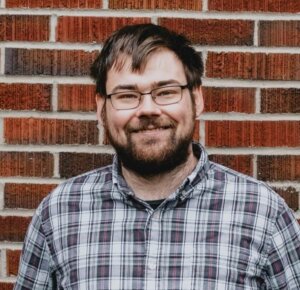
David Bacher
PhD Student
Advisor: Prof. David Barnhart
David Bacher is pursuing a doctoral degree in Astronautical Engineering at the University of Southern California. His research interests include Guidance, Navigation, and Controls (GNC), Rendezvous and Proximity Operations (RPO), and In-space Servicing, Assembly, and Manufacturing (ISAM). The goal of his research is to enable the assembly of large structures in space, such as solar arrays, telescope mirrors, and radiator panels.
David received a Bachelor’s degree in Mechanical Engineering from George Fox University in Newberg, Oregon in 2020, and a Master’s degree in Astronautical Engineering from USC in 2022. In 2023, he received a Pathways Internship at NASA’s Langley Research Center in Hampton, Virginia, where he works in the Autonomous Integrated Systems Research Branch (AISRB).
David is originally from Eatonville, Washington, near the base of Mount Rainier. He enjoys outdoor activities including hiking, biking, and swimming. He also likes movies and TV, especially science fiction. He has an interest in history and visiting museums, particularly air and space museums.

Russell Burns
PhD Student
Advisor: Prof. Joseph Wang
With LEAP, Russell is currently performing particle-in-cell simulations of novel ion thruster grid geometries as part of an effort to improve exhaust plume convergence. The research would conclude with experimental validation of a final design. The applications of ion thruster research continue to evolve, but immediate applications of Russell's work include finer satellite attitude control and more efficient deep-space probe propulsion.
After watching Planet 51 in theaters, Russell decided at seven years old that he wanted to become an astronaut—or at least work in the space industry. 16 years of dreaming and two NASA internships have since led him to USC, where he hopes to finish his M.S. ASTE next year and continue his Ph.D. research full-time. In his leisure time, Russell enjoys running (short or far), playing bass, tinkering with old electronics, and exploring nature.
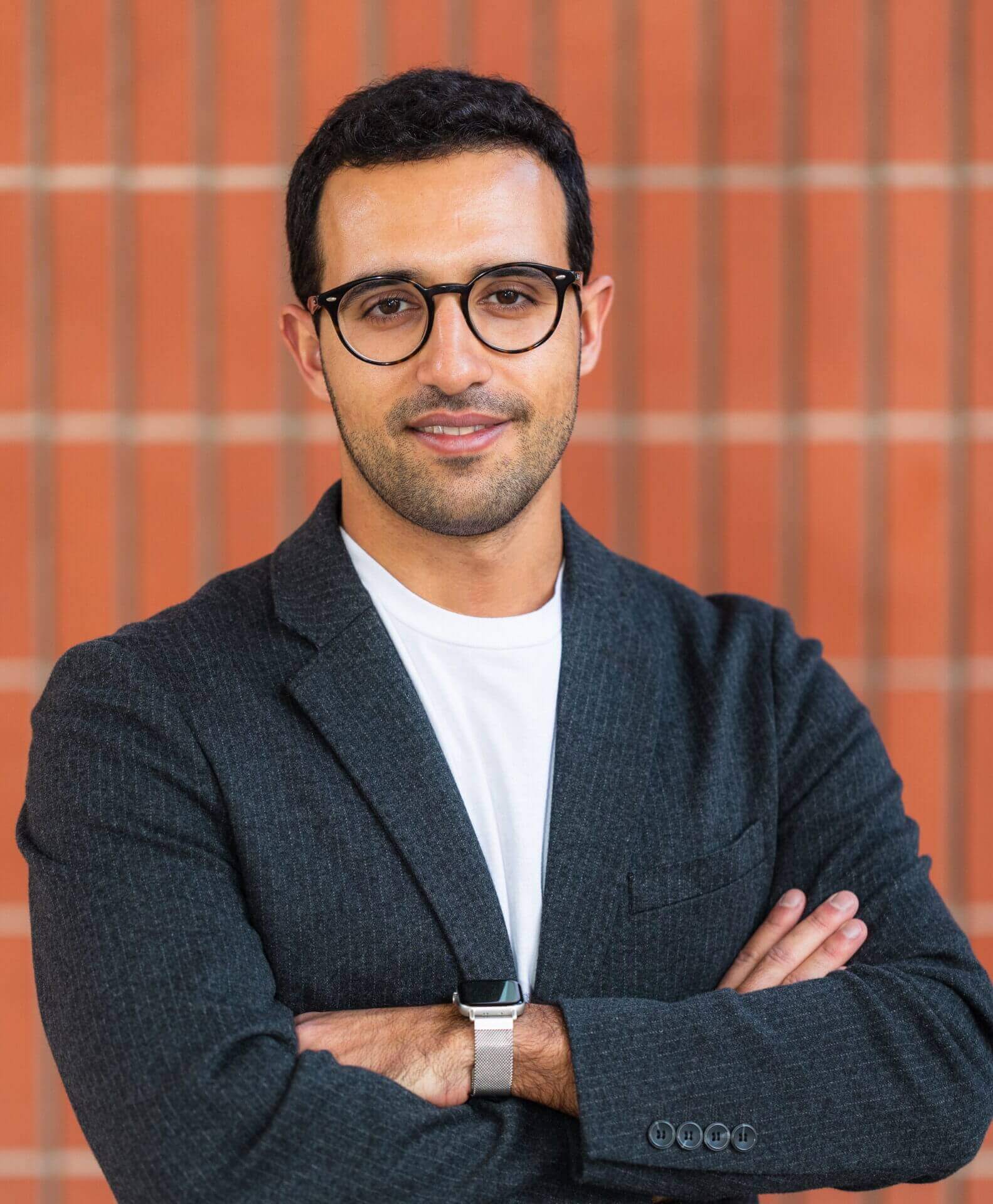
José Pedro Ferreira
PhD Student
Advisor: Prof. Joseph Wang
José Pedro Ferreira is a Fulbright and NASA FINESST fellow pursuing a doctoral degree in Astronautical Engineering at University of Southern California under the subject of space sustainability and environmental impact of space debris demise.
José holds a Master’s degree in Aerospace Engineering from Instituto Superior Técnico – University of Lisbon, has been trained in concurrent engineering by ESA and in nanosatellite technology by ISRO. José conducted graduate-level research at Delft University of Technology and at NASA Ames Research Center.
As an aerospace engineer, he served as the lead systems engineer for the INFANTE project that developed a SAR microsatellite, and as a guest lecturer at the Polytechnic Institute of Setubal where he also conducted research at its Center for Product Development and Technology Transfer.
Furthermore, José worked as the co-lead of the Commercial Space Project Group within the Space Generation Advisory Council, is an effective member of the Space Entrepreneurship and Investment Committee at the International Astronautical Federation, and served as a delegate in the 57th and 58th Scientific and Technical Subcommittees of the UN COPUOS.
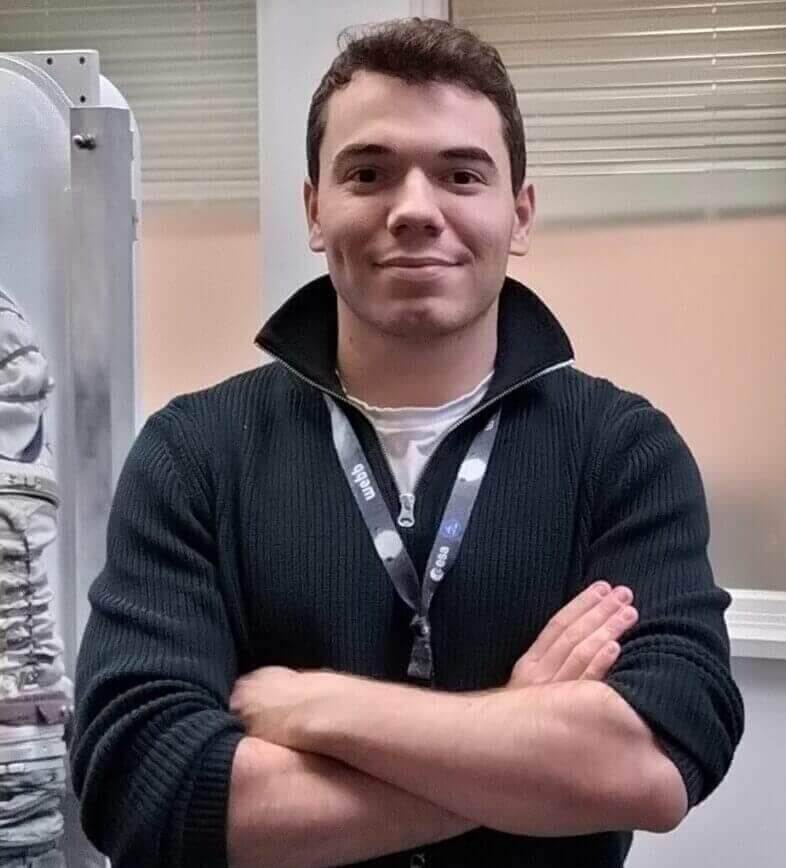
Howard Hall
PhD Student
Advisor: Prof. David Barnhart
Howard Hall is a British PhD student working at SERC on the development of Segmented Space Telescope missions. Howard joins us from the European Space Agency where he was a Young Graduate Trainee for the last two years. Howard read physics at St. Hugh’s College, University of Oxford, and graduated with a masters in 2021.
At ESA’s ESTEC facility in The Netherlands, Howard served as a mission performance engineer in the Ariel project team, focusing on the overall development of the exoplanet spectroscopy space telescope currently in phase B2. His work there included mission level systems engineering, research into pointing error drift detrending, payload simulator development, as well as in depth detector performance analysis and selection.
Howard’s previous master’s research focused on the design and development of a low cost time to digital converter (TDC) that employs delay-line technology on off-the-shelf FPGAs to be used in a particle detector, and provided the first steps in his transition from physics into engineering.
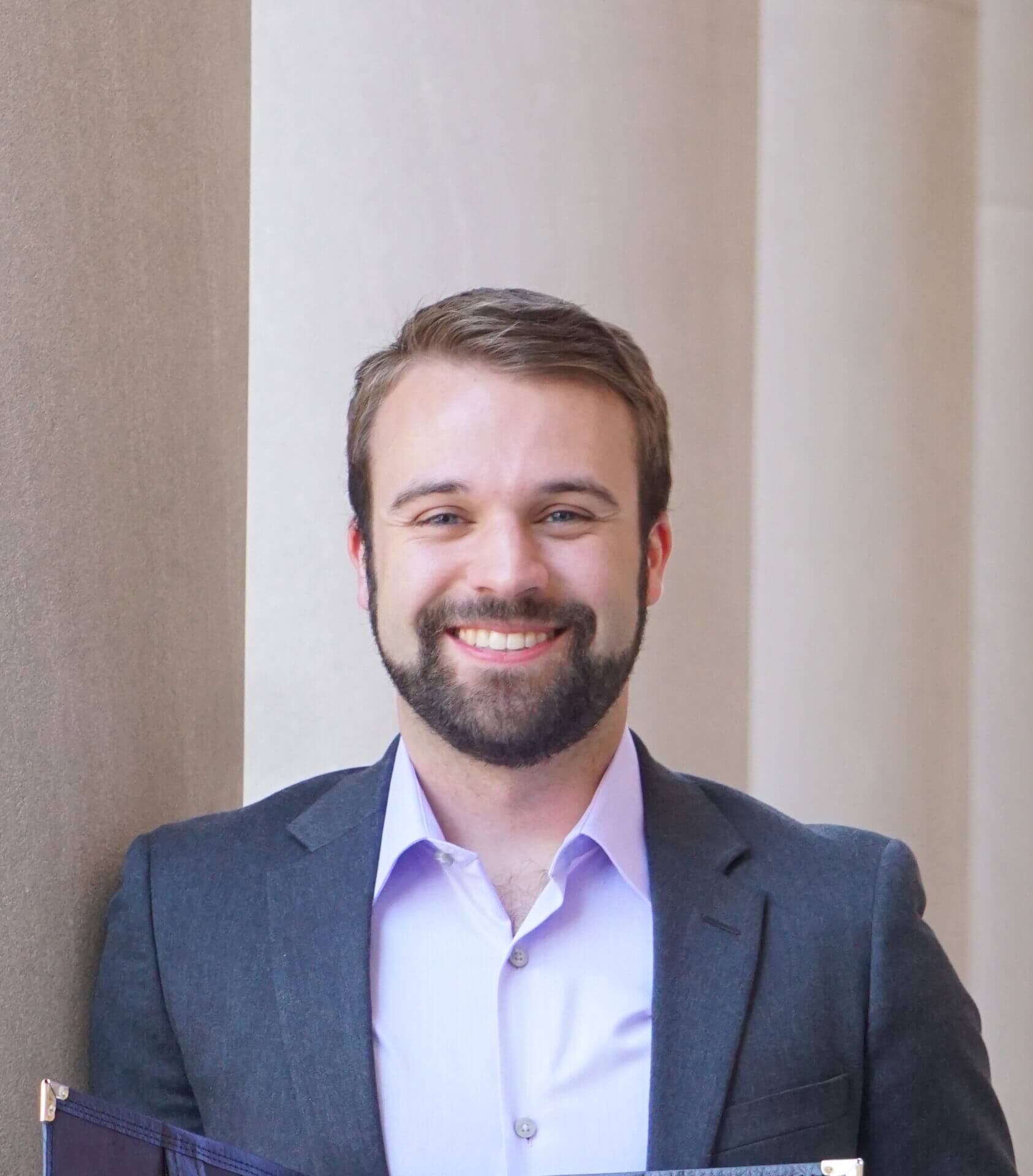
Jaxson Hill
PhD Student
Advisor: Prof. David Barnhart
Jaxson Hill is a Ph.D. student in the Astronautical Engineering department under the faculty advisement of David Barnhart, director of the Space Engineering Research Center (SERC). Jaxson completed his B.S. at Harvard University in 2023, earning his mechanical engineering degree with a minor in astrophysics. While at Harvard, he was involved with the student astronomy club, STAHR, helping to manage their historic 10” refractor telescope and Harvard’s first undergraduate CubeSat team experimenting with shape memory alloys. For his senior thesis capstone project, he worked alongside NASA Jet Propulsion Laboratory to design, build, and test a custom 3D-printed warm gas propulsion system for a theoretical interplanetary CubeSat mission accompanying Europa Clipper.
Currently a G1, Jaxson is still narrowing his research interests. He is passionate about advancing humanity’s exploration of our solar system and cosmos. Therefore he is interested in studying advanced spacecraft technologies to enable more complex research and observation of planetary bodies and deep space objects. Outside of his studies, Jaxson enjoys hiking and exploring National Parks, keeping up with the latest Nintendo games, and eating as much Tex-Mex food as he possibly can.
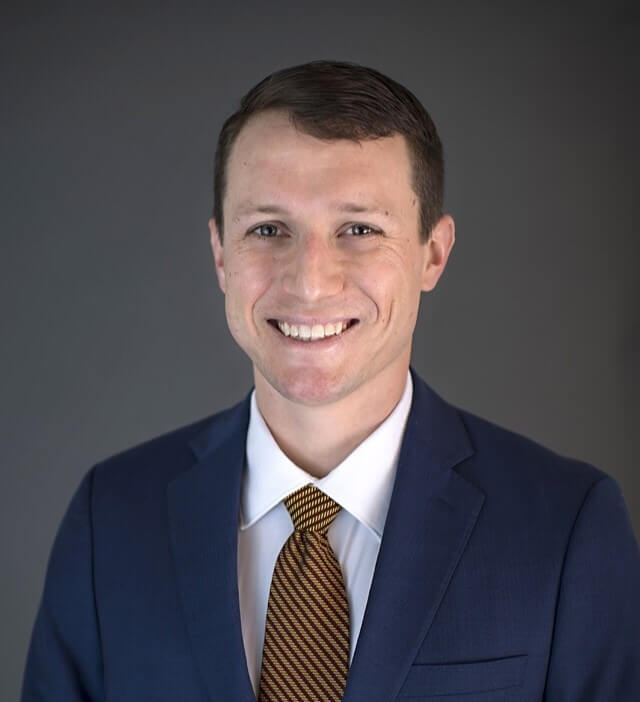
Jonathan Messer
PhD Student
Advisors: Prof. David Barnhart
Jonathan is a Ph.D. student in Astronautical Engineering at the University of Southern California, working under the advisement of Professor David Barnhart at the Space Engineering Research Center (SERC). He holds a B.S. in Aerospace Engineering from Boston University and multiple advanced degrees from USC, including an M.S. in Systems Architecting and Engineering and an M.S. in Astronautical Engineering.
Originally from Fayetteville, North Carolina, Jonathan served as a Naval Aviator in the U.S. Navy for 11 years, flying over 2,000 hours in the P-3C Orion and T-6B Texan II. He currently works part-time as a systems engineer at Northrop Grumman. His research focuses on using digital micromirror devices (DMDs)—a technology common in video projectors—for spacecraft attitude control via solar radiation pressure, with the goal of extending the mission life of geosynchronous and interplanetary satellites.
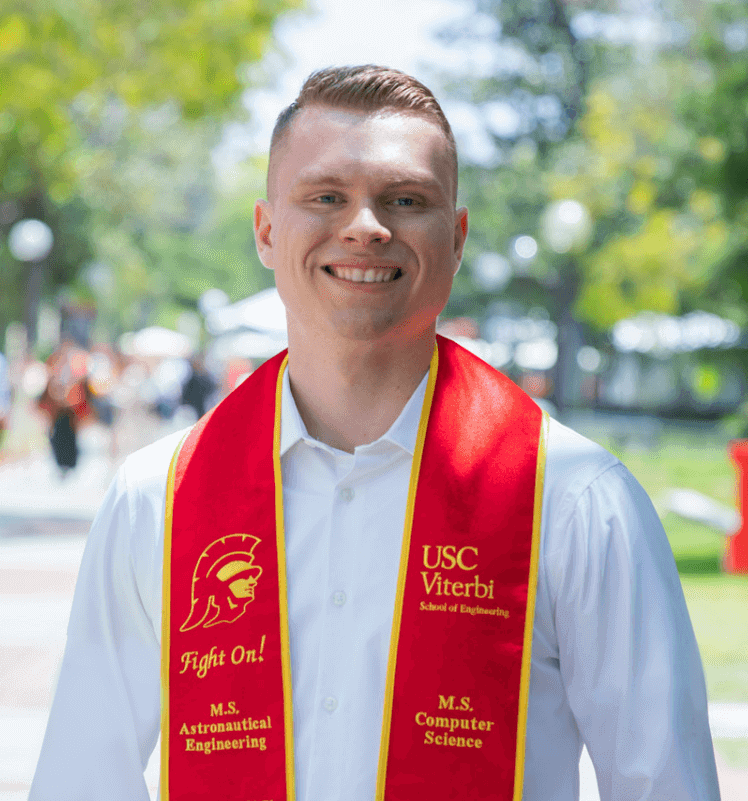
Jacob Meyer
PhD Student
Advisor: Prof. Joseph Wang
Jacob is a PhD Student in Astronautical Engineering who holds Master's in Astronautical Engineering and is also pursing his Master's of Computer Science - High Performance Computing. He also received his Bachelors of Science in Aerospace Engineering & Mechanics from the University of Minnesota - Twin Cities. Jacob was inspired to pursue a career in space from a young age after watching Star Trek for the first time, and his career goals include becoming both an Astronaut and a successful Entrepreneur. His brother, Nick, is a successful seven-figure entrepreneur in the finance space.
The objective of Jacob's research is to advance multi-physics modeling tools for AF-M315E in-space propulsion systems through a sequence of steps (1D transient, 3D transient), using results from a companion experimental effort for systematic validation at each step. The final tools will include chemistry, multi-phase fluid flow, gas flow, and porous flow through catalyst based monopropellant thrusters. These models will inform the thruster design optimization process for AF-M315E ("ASCENT"), which is a relatively new "green" fuel which is much less toxic compared to traditional monopropellants used in spacecraft thrusters.
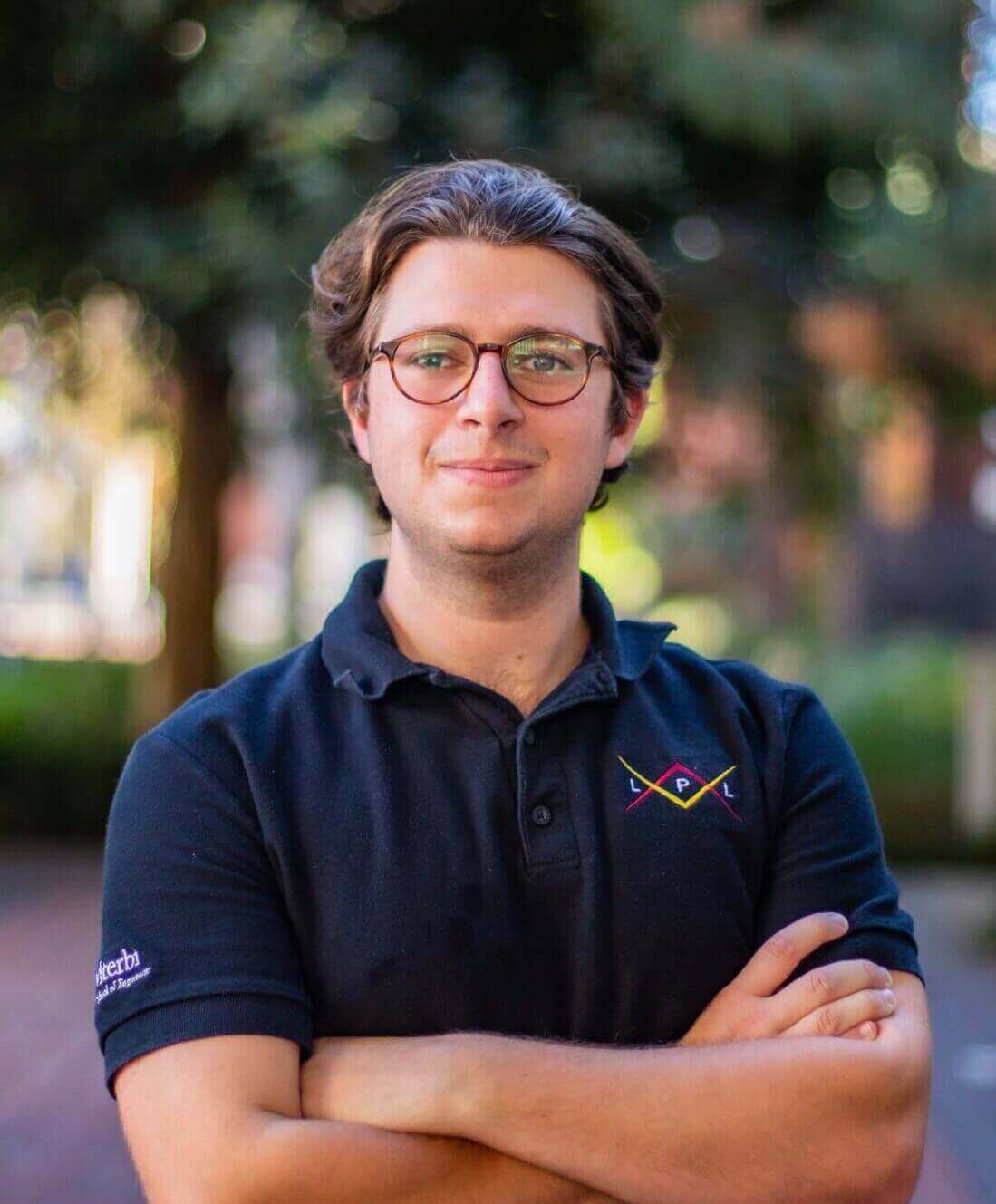
Tyler Presser
PhD Student
Advisor: Prof. Dan Erwin
Tyler has been passionate about spaceflight and space exploration since he was kid who would write letters to NASA astronauts, telling them he wanted to be just like them when he grew up. He received a joint B.S. and M.S. in Astronautical Engineering from the University of Southern California (USC) in 2021. While in his junior year he decided that he wanted to pursue research in mission design after leading his class in the design of a concept review for an asteroid sample return mission.
For his PhD in Astronautical Engineering, he is developing tools for the rapid design of spacecraft trajectories. The goal of this research is to enable scientific research teams to focus more of their mass and financial budgets on scientific research by utilizing highly efficient low-thrust propulsion systems and trajectories to reach their destinations.
Tyler also works with the Astrodynamics Team at Advanced Space LLC. There he works to design machine learning algorithms to enable automated spacecraft maneuvering and anomaly detection, as well as designing tools for onboard spacecraft generation of optimal low thrust transfers in Cislunar space.
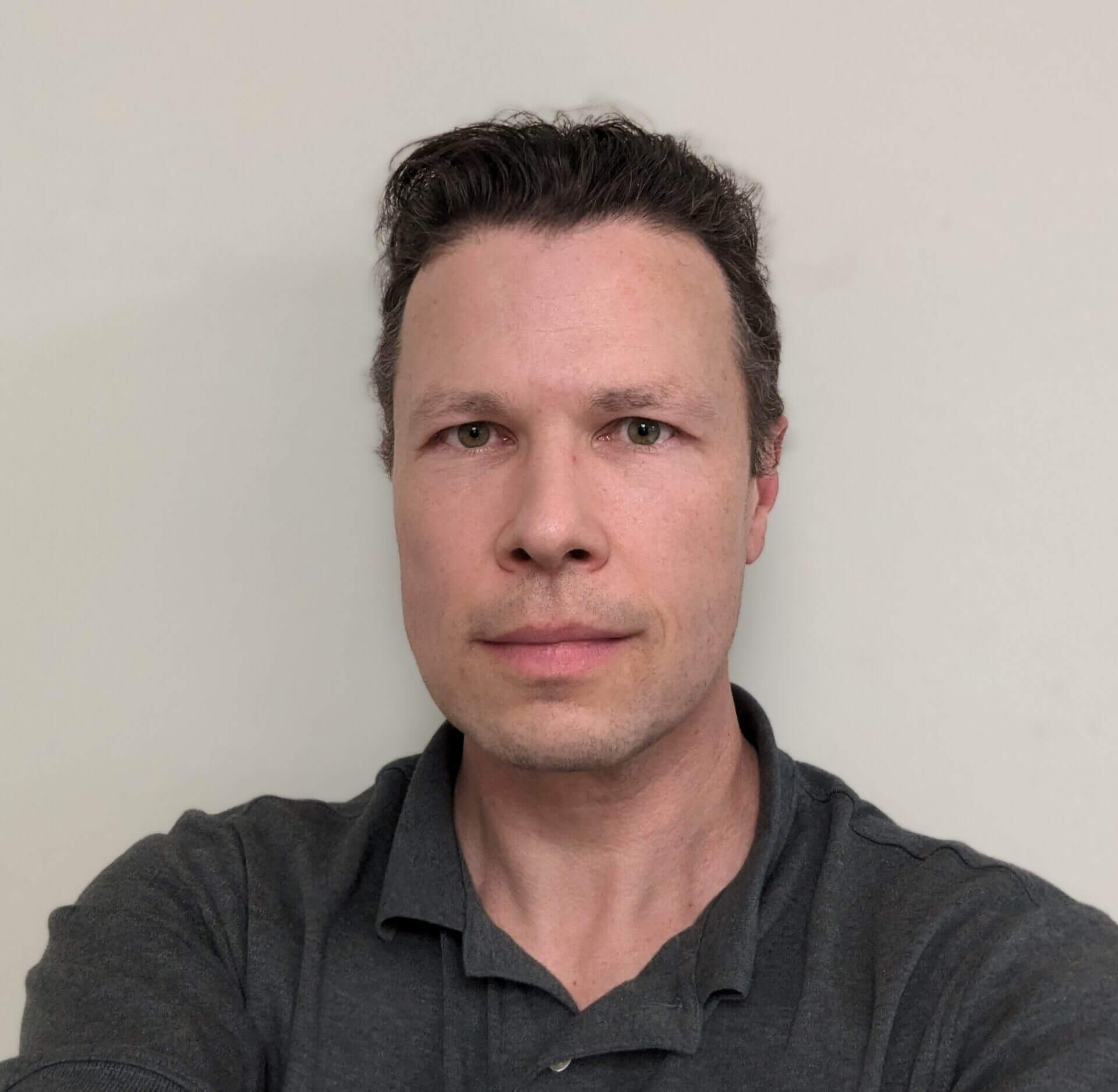
James Robertson
PhD Student
Advisor: Prof. Joseph Wang
James Robertson was born in Glasgow, Scotland and grew up in Lafayette, California with his parents and two sisters. He earned his B.S. in computer science and engineering and Master's degree in electrical engineering and computer science from the Massachusetts Institute of Technology.
As an engineer in the aerospace industry he has worked on a wide variety of technologies for prototype aerospace vehicles. He has worked with fly-by-wire control systems, electromechanical actuators, data acquisition systems, power electronics, and rocket engines. He has designed high-performance, internally redundant brushless electric motors for electromechanical actuators for tilt rotor aircraft. He has also designed propulsion motors for an eVTOL aircraft. At Vector Launch, he was the technical lead for the second-stage autogenous pressurization system. At Flight Works, he writes embedded software and designs electronics for spacecraft, including radiation tolerant brushless motor controllers.
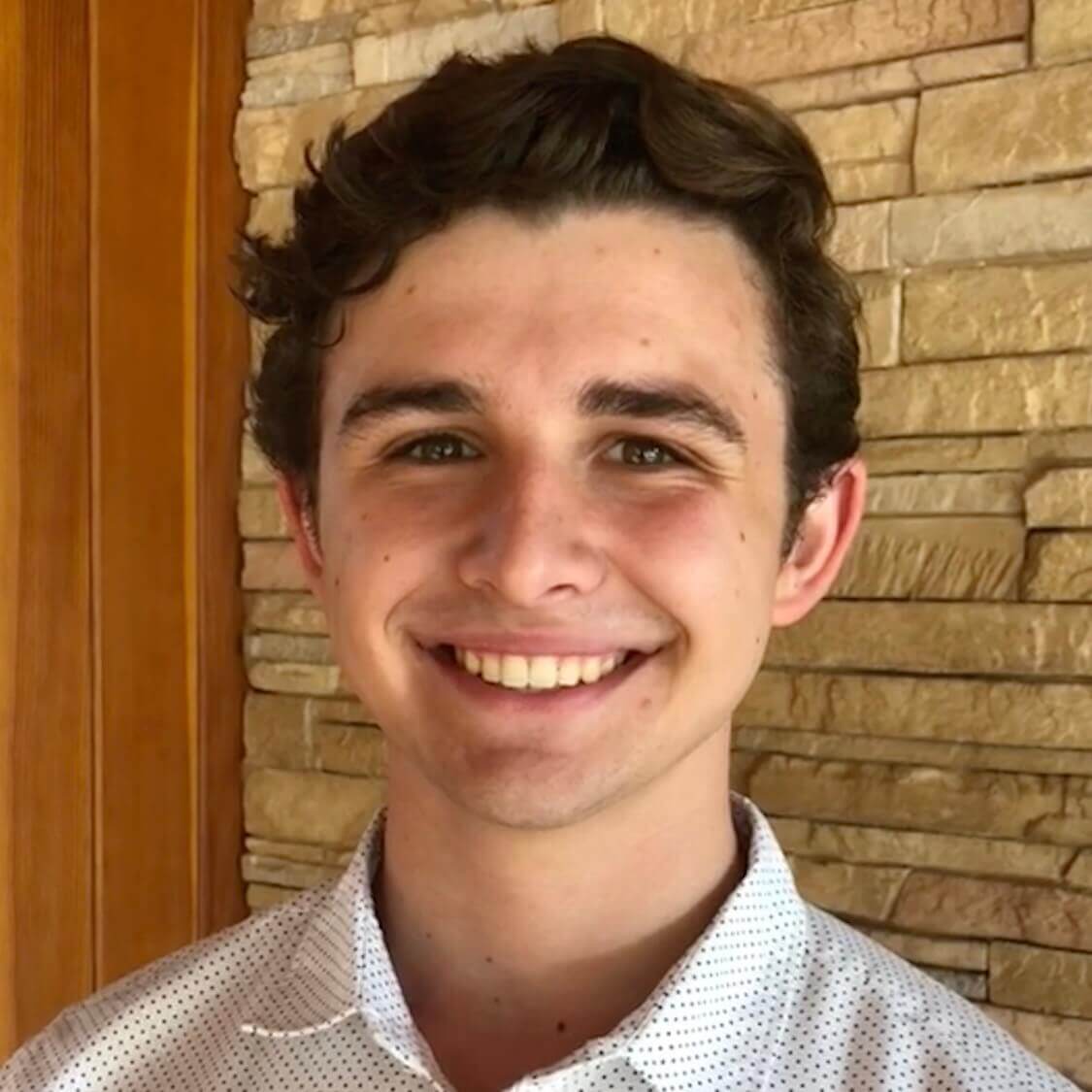
Kevin Sampson
PhD Student
Advisor: Prof. Joseph Wang
Kevin is a PhD student and has been with the research group since 2018 as an undergraduate. He completed both his bachelor’s and master’s degrees in Astronautical Engineering at USC in 2020. He is an ARCS Scholar and has published papers on electrospray time-of-flight spectroscopy and electric thruster simulations in Earth's magnetosphere. His current research includes novel methods for electrospray thruster development, multi-scale electrospray model simulations, and investigations into ion fragmentation. In addition to his research interests, he is an avid college football/basketball fan, amateur boulderer, and a crossword enthusiast.
Kevin’s research largely focuses on the development and improvement of electrospray thruster performance through nanofabrication techniques. The primary goals of this work are both to increase the packing density of electrospray emitter tips and to introduce a self-aligned electrode, ultimately enhancing both thruster performance and lifetime expectations. In concert with this project, his research includes the improvement of the lab’s existing electrospray thruster multi-scale model, development of diagnostic devices, and molecular dynamic investigations into ion fragmentation.
Previously, Kevin worked as USC’s Collaborative High Altitude Flow Facility (CHAFF), where he researched thrust stand calibration and development. He also interned for two years at The Aerospace Corporation’s Electric Propulsion and Plasma Science group, focusing on Xenon beam ion simulations from electric thrusters in Earth's magnetosphere and combustion in high-pressure, highly-oxidized environments. He is an ARCS Scholar and has published papers on electrospray time-of-flight spectroscopy and electric thruster simulations in Earth's magnetosphere.
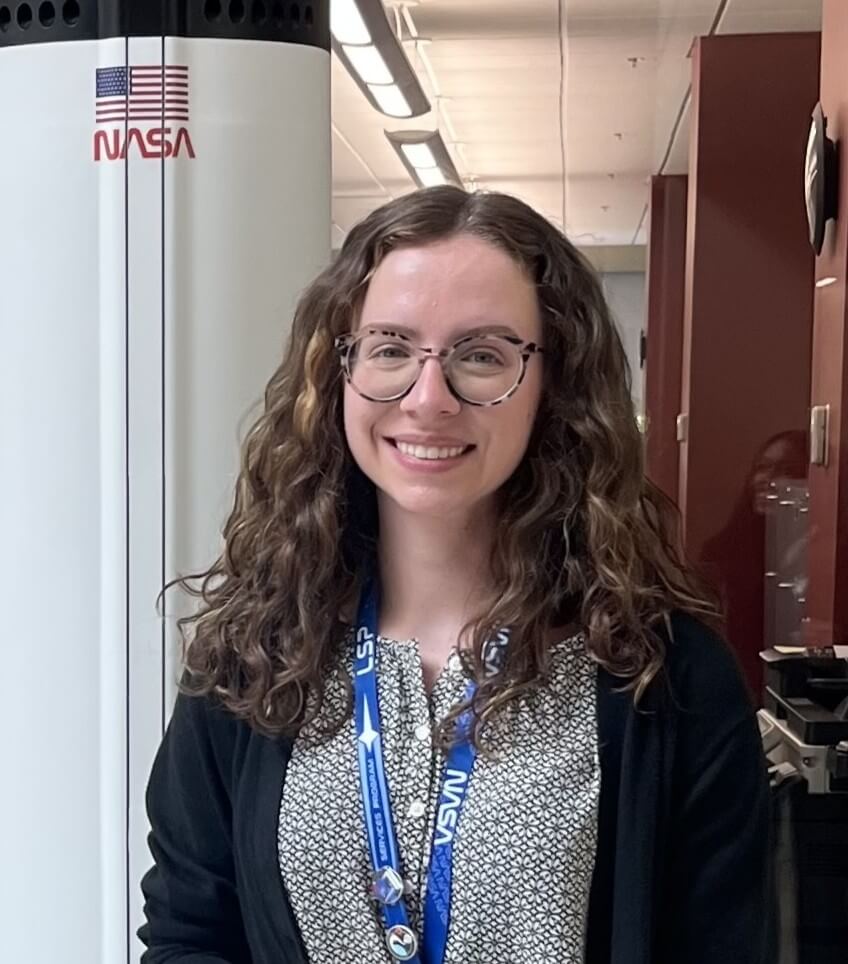
Maddy Stratton
PhD Student
Advisors: Prof. David Barnhart
Maddy Stratton is a Ph.D. student in the Astronautical Engineering department working under David Barnhart at the Space Engineering Research Center (SERC). She completed the MS in Astronautical Engineering at USC in 2024 and worked under David Barnhart on a thesis titled "Optimizing Element & System Compliance of Robotic, Gecko Adhesion-Based Grippers to Unprepared Space Debris Targets." During her master's, she modelled the dynamics of a space debris removal robotic gripper with gecko adhesion technology, which provided design feedback for space hardware to be flown on the ISS in late 2024. She graduated with a bachelor's in astrophysics and a minor in mathematics from the University of North Carolina at Chapel Hill in 2023, where she completed more than two years of research in theoretical physics and cosmology.
Maddy completed two NASA internships at the Marshall Space Flight Center, where she built and integrated a plume surface interaction model into a Human Landing System (HLS) 6-DOF Simulink flight simulation architecture and Monte-Carlo tool for vehicle dynamics during lunar descent and ascent. She also developed an ejecta model to analyze experimental particle data and inform flight-scale ejecta predictions.
Maddy is passionate about science communication and outreach, and worked for more than two years as a planetarium presenter at UNC Chapel Hill's Morehead Planetarium. She was also a NASA-partner Eclipse Ambassador and completed eclipse outreach during the 2024 total solar eclipse.
Maddy is developing a research direction for the PhD, but is interested in using physics-based simulation to model plume surface interactions and debris in the space environment within a large modular space telescope architecture.
Outside of the lab, Maddy enjoys being active, playing guitar, and sampling all of LA's amazing vegan food.

